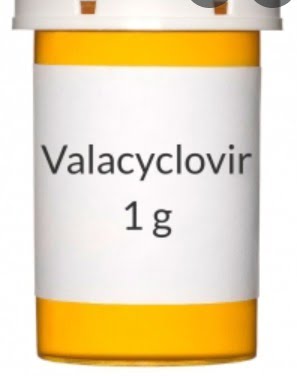Frequently Asked Questions (FAQs) About Genital Herpes: DiseaseFix Fact Sheet
- Updated on: Jul 15, 2024
- 4 min Read
- Published on Apr 20, 2021


Commonly Asked Questions about Genital Herpes (HSV)
Here are top questions and their answers about genital herpes (HSV) people usually seek answer for.
What is Genital Herpes?
Genital herpes is a sexually transmitted disease (STD) caused by two types of viruses. The viruses are called herpes simplex virus type 1 (HSV-1) and herpes simplex virus type 2 (HSV-2).
Read more about HSV1.
Read more about HSV2.
Genital herpes is a common sexually transmitted disease that any sexually active person can catch. Most people with the virus don’t show symptoms.
What is oral herpes?
Oral herpes is generally caused by HSV type 1 virus and can result in cold sores or blisters on or around the mouth. But, most people do not show any symptoms. People who are infected in childhood or young adulthood from non-sexual contact with saliva generally get oral herpes.
Is HSV common? How common is genital herpes?
Genital herpes is a very common disease in the United States. More than one out of every six people in sexually active age (14 to 49) years have genital herpes.
How is HSV2 (genital herpes) spread? Is HSV2 contagious?
One can get genital herpes through a sexual contact either by vaginal, anal, or oral sex with someone who has the disease.
You can get infected with the virus if you come in contact with the herpes virus through such as:
- a herpes sore
- saliva (if the other person has an oral herpes infection) or genital secretions (if the other person has a genital herpes infection)
- skin in the oral area if the partner has an oral herpes infection
- skin in the genital area if the partner has a genital herpes infection
You will not get herpes from toilet seats, bedding, or swimming pools, or from touching objects around you such as soap, or towels etc.
How can I reduce the risk of getting genital herpes?
These are some ways you can help reduce the risk of getting genital herpes:
- Use a condom every time you have sex
- Ask your partner if he or she has had a sexually transmitted disease
- Ask your partner about his or her sexual history
- Limit the number of your sexual partners
- Don’t have sex with someone who has sores on his or her genitals
- Don’t receive oral sex from somebody who has a cold sore
- Get yourself and your partner tested for genital herpes
Can herpes be cured?
There is no cure for herpes disease. However, there are some medicines that can help prevent or reduce the outbreaks. Some medicines make it less likely that you will pass the infection on to your sex partner. Read more about treating genital herpes.
What happens if I don’t get treatment on time?
Painful genital sores can develop if the disease is not treated on time. The symptoms can be severe in people who have suppressed immune systems.
If you are pregnant, there can be complications for you and your growing baby.
See for complications of genital herpes.
Can I have sex if I have herpes?
Use of condoms can help lower the risk of transmitting the disease to your sex partner. But, it will not get rid of the risk entirely. If you have sores or other symptoms of herpes, there is still a risk of spreading the disease to your sex partner. Even if you do not have any symptoms, you can still cause infection to your sex partner.
There may be concerns about impact of genital herpes on your health, sex life, and relationships. You should talk to your doctor about such concerns. Your doctor may recommend certain daily suppressive therapies for herpes to lower the risk of spreading infection to your sex partner. But this should be done after consultation with a doctor.
I’m pregnant. Can genital herpes affect my baby?
If you are pregnant and have genital herpes, it is important to go for prenatal care visits. Tell your doctor about the symptoms. There are some evidences that suggest that genital herpes may lead to miscarriage or may cause to deliver the baby too early.
Genital herpes infection can be passed to your unborn child before birth, but is more likely to be passed to your infant during delivery. This can lead to a complication in your baby called neonatal herpes.
How do I know if I have developed genital herpes infection?
Most of the times, genital herpes does not cause any symptom or show very mild symptoms in the beginning. You may mistake the disease for any skin condition, such as a pimple.
Herpes sores generally appear as blisters on or around the genitals, rectum or mouth. The blisters break and leave painful sores. This is called ‘outbreak’.
You should meet your doctor if you or your partner notices any of the STD symptoms such as sore around genitals, a smelly genital discharge, burning when urinating, or bleeding between periods.
How will my doctor know if I have herpes?
Your doctor can diagnose genital herpes by looking at your symptoms through a physical exam. He or she can also take a sample from the sore and test it. A blood test may also be used in some cases to look for herpes antibodies.
The blood test can help identify if you have the infection. It cannot tell you about the source of the infection or who gave you the infection or how long you have been infected with it.
Can HSV (genital herpes) kill you?
Genital herpes is not a life threatening disease in itself. But having sores makes it easier for HIV to enter your body. This may put you more at risk of AIDS.
How often will I have symptoms of genital herpes?
Most people never have any symptoms, and don’t even know that they are infected. But people who do get symptoms of genital herpes, the frequency of outbreaks and the duration vary greatly from person to person. Several factors can trigger the symptoms such as stress, other illnesses, immunity, menstrual periods etc.
Can HSV2 be transmitted through kissing? Can you give someone HSV 2 by kissing?
Can hsv2 be transmitted through saliva? The virus is more likely to be transmitted when sores are present. If there are no sores, it does not guarantee transmission.
If the infected person is contagious, the virus can be transmitted in saliva, therefore kissing can put you at risk.
Can HSV2 go away on its own?
An outbreak of genital herpes generally go away on its own in about one week, but sometimes it may last longer such as a month or more. Antiviral medications can help minimize the symptoms and reduce the recurrence of outbreaks, however. You should talk to your doctor if the symptoms are severe.












